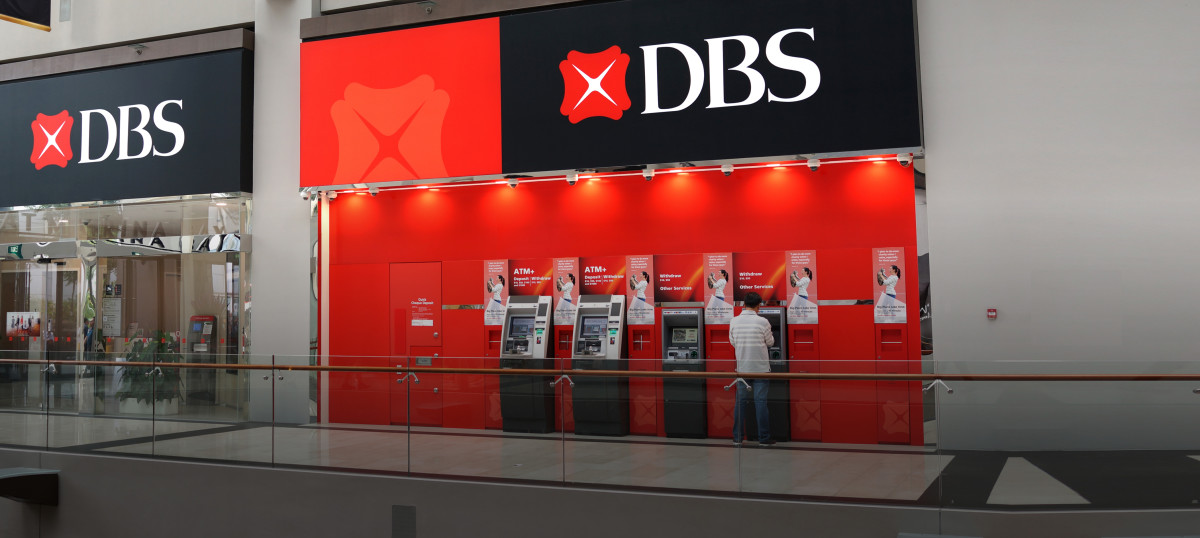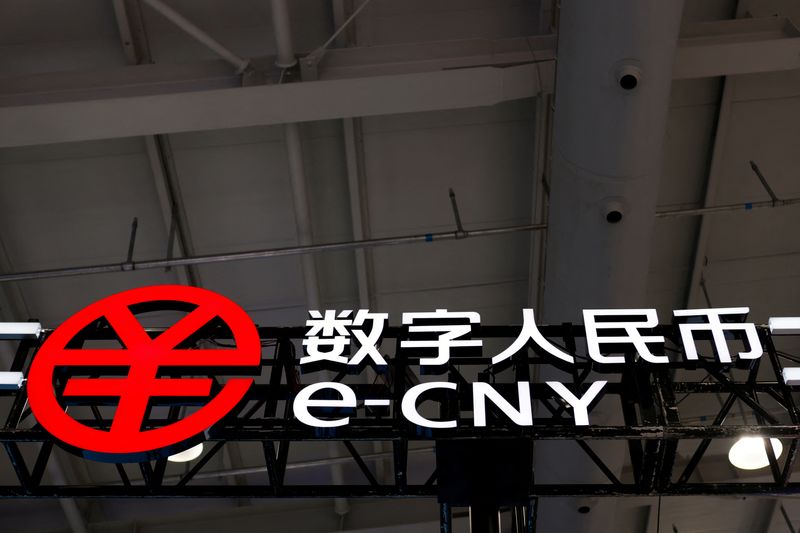Month: September 2024
REGULATING BITCOIN AND CRYPTO IN NIGERIA: CROSSROADS BETWEEN CAPITAL CONTROL AND FINANCIAL FREEDOM
The ascent of Bitcoin and digital assets has sparked a classic battle, with governments acting as vigilant hawks, trying to control a technology that is as nimble and elusive as a gazelle darting across the savanna of decentralization. In Nigeria, this conflict is as tangled as dense jungle foliage, where regulators strive to enforce their rules on a system meant to evade conventional constraints, while individuals continue to pursue the elusive prize of financial freedom just out of grasp. The Central Bank of Nigeria (CBN) has oscillated between hardline approaches and cautious acceptance, exemplified by its 2021 directive banning banks from facilitating Bitcoin transactions. Yet, just a few years later, the same CBN approved the launch of a Naira-backed stablecoin, signaling a growing recognition of the inevitable role digital currencies will play in the future of finance. However, these regulations, rather than protecting Nigerians, have often undermined the rights of citizens to freely participate in the financial revolution that Bitcoin offers. This culminated in a recent court case brought by James Otudor, an ardent Bitcoin advocate, who has sued the Nigerian government, seeking to establish the fundamental right of citizens to trade and own Bitcoin and USDt. The case shines a spotlight on the larger issue of human rights being trampled upon in the name of regulatory oversight. It’s not just about financial innovation, it’s about ensuring that Nigerians are not excluded from the benefits of a global economy increasingly driven by decentralized technologies.
“The Chronology of Cryptocurrency Regulation In Nigeria” SOURCE :- Templars Law
Across Africa, the regulatory landscape for Bitcoin and digital assets is shaped by two competing paradigms: collaboration and confrontation. Nigeria’s Securities and Exchange Commission (SEC) has taken some steps toward a collaborative model, as seen in the launch of its Regulatory Incubation Program aimed at fostering innovation while maintaining oversight. Yet, even within this supposedly progressive framework, the right of Nigerians to freely own and transact in Bitcoin remains under threat. Recent actions, such as the freezing of assets linked to the Bybit and KuCoin exchanges, illustrate how deeply entrenched government control remains. In other African nations, such as Ghana and Kenya, similar dynamics are playing out, with governments hesitating to fully embrace decentralized currencies, despite clear public demand. The Nigerian SEC’s approval of two cryptocurrency exchanges in 2024 represents a positive step, but this piecemeal approach fails to address the larger issue of financial sovereignty for Nigerians. South Africa has taken a slightly more balanced route, regulating Bitcoin and digital assets as financial assets while allowing for greater integration into the traditional financial ecosystem. Nevertheless, these approaches, while varied, all point to the same fundamental issue: the lack of a clear framework that respects the unique nature of Bitcoin and its potential to transform economies and empower citizens.
As Nigerian regulators grapple with how to manage this burgeoning industry, they must recognize that Bitcoin’s regulatory landscape cannot be lumped together with the entire digital assets ecosystem. Bitcoin operates on fundamentally different principles, with decentralization at its core, unlike many other digital assets that may still rely on centralized control or governance. Any attempt to impose blanket regulations on all digital assets, including Bitcoin, would be a catastrophic misstep, one that risks stifling innovation and depriving Nigerians of the opportunity to fully participate in the global economy. Regulators must, therefore, approach Bitcoin with a unique understanding of its intrinsic operational metrics. Its decentralized nature is not a flaw to be regulated out of existence but a feature that offers unprecedented opportunities for financial inclusion and economic freedom. Policymakers should learn from global examples, such as Europe’s MiCA framework, but adapt those lessons to the specific context of Bitcoin, ensuring that they do not impose unnecessarily restrictive regulations. The failure to distinguish Bitcoin from other digital assets in the regulatory process would result in inefficiency, stifle innovation, and risk pushing legitimate activities into the shadows. James Otudor’s court case stands as a pivotal moment, not just for Nigeria but for the entire continent, as it seeks to ensure that financial regulations are crafted with a respect for human rights and an understanding of the transformative power of decentralized finance.
“The Global Crypto Adoption Index Score” SOURCE :- Chainalysis
The way forward for Nigeria is clear: regulators must craft policies that protect citizens while encouraging innovation, and they must do so with the understanding that Bitcoin is fundamentally different from other digital assets. The current regulatory push, if not carefully balanced, risks becoming a tool of oppression rather than empowerment. By engaging with the Bitcoin community and developing a nuanced approach to regulation, Nigeria can position itself as a leader in the global financial revolution. Anything less would be a disservice to the millions of Nigerians who have already embraced this new paradigm and a betrayal of the ideals of freedom and innovation that Bitcoin represents.
This is a guest post by Heritage Falodun. Opinions expressed are entirely their own and do not necessarily reflect those of BTC Inc or Bitcoin Magazine.
Bitcoin’s Future in Payments: Overcoming Stablecoin Dominance with Fiatless Fiat
Stablecoins have so far dominated the crypto payment market, but some Bitcoin developers believe there’s a proposal out there that could offer a legitimate alternative.
Seven years ago, Dorier, a long-time developer, set out to democratize bitcoin payment processing by launching a free and open-source alternative to the then-dominant BitPay: BTCPay Server. Today, despite the project’s strong grassroots success among Bitcoin enthusiasts and online merchants, the landscape of cryptocurrency payments has evolved dramatically from when Dorier first began his journey. The rise of stablecoins has quickly dominated the space, pushing bitcoin—the world’s largest digital asset—to the sidelines in the payment processing arena.
Fueled by growing demand for stable currency options, particularly US dollars, stablecoins have swiftly taken over the cryptocurrency payments market. This surge has left many Bitcoin enthusiasts struggling to cope with the reality that these dollar-pegged assets could reinforce the very system Bitcoin was designed to challenge—the hegemony of the US dollar. As stablecoins continue to gain traction, Bitcoin promoters find themselves at a crossroads, questioning how to preserve Bitcoin’s vision of financial sovereignty in a market increasingly leaning toward stability over decentralization.
A new proposal emerging from the Lightning ecosystem has caught Dorier’s attention, and the veteran developer believes it could address this obstacle. Speaking to a packed audience at BTCPay Server’s recent annual community gathering in Riga, Dorier introduced the concept of “fiatless fiat”—a Bitcoin-native alternative to treasury-backed stablecoins like Tether and USDC.
Synthetic USD
Back in 2015, BitMEX co-founder and then-CEO Arthur Hayes outlined in a blog post how to use futures contracts to create synthetic US dollars. Although this idea never gained widespread traction, it became a popular strategy among traders seeking to hedge against bitcoin’s volatility without having to sell their underlying bitcoin positions.
For readers less familiar with financial derivatives, a synthetic dollar (or synthetic position) can be created by two parties entering a contract to speculate on the price movement of an underlying asset—in this case, bitcoin. Essentially, by taking an opposite position to their bitcoin holdings in a futures contract, traders can protect themselves from price swings without having to sell their bitcoin or rely on a US dollar instrument.
More recently, services like Blink Wallet have adopted this concept through the Stablesats protocol. Stablesats allows users to peg a portion of their bitcoin balance to a fiat currency, such as the US dollar, without converting it into traditional currency. In this model, the wallet operator acts as a “dealer” by hedging the user’s pegged balance using futures contracts on centralized exchanges. The operator then tracks the respective liabilities, ensuring that the user’s pegged balance maintains its value relative to the chosen currency. (More detailed information about the mechanism can be found on the Stablesats website.)
Obviously, this setup comes with a significant trade-off. By using Stablesats or similar services, users effectively relinquish custody of their funds to the wallet operator. The operator must then manage the hedging process and maintain the necessary contracts to preserve the synthetic peg.
Stable channels and virtual balances
In Riga, Dorier pointed out that a similar effect can be achieved between two parties using a different type of contract: Lightning channels. The idea follows recent work from Bitcoin developer Tony Klaus on a mechanism called stable channels.
Instead of relying on centralized exchanges, stable channels connect users seeking to hedge their Bitcoin exposure with ‘stability providers’ over the Lightning network. A stable channel essentially functions as a shared Bitcoin balance, where funds are allocated according to the desired exposure of the ‘stability receiver.’ Leveraging Lightning’s rapid settlement capabilities, the balance can be continuously adjusted in response to price fluctuations, with sats shifting to either side of the channel as needed to maintain the agreed distribution.
Here’s a simple chart to illustrate what the fund’s breakdown may look like over time:
credit: Tony Klaus
Clearly, this strategy entails considerable risks. As illustrated above, stability providers taking leveraged long positions on the exchange are exposed to large downside price volatility. Moreover, once the reserves of these stability providers are exhausted, users aiming to lock in their dollar-denominated value will no longer be able to absorb further price declines. While those types of rapid drawdowns are increasingly rare, Bitcoin’s volatility is always unpredictable and it’s conceivable that stability providers may look to hedge their risks in different ways.
On the other hand, the structure of this construct allows participants’ exposure within the channel to be linked to any asset. Provided both parties independently agree on a price, this can facilitate the creation of virtual balances on Lightning, enabling users to gain synthetic exposure to a variety of traditional portfolio instruments, such as stocks and commodities, assuming these assets maintain sufficient liquidity. Researcher Dan Robinson originally proposed an elaborated version of this idea under the name Rainbow Network.
The good, the bad, the ugly
The concept of “fiatless fiat” and stable channels is compelling because of its simplicity. Unlike algorithmic stablecoins that rely on complex and unsustainable economic models involving exogenous assets, the Bitcoin Dollar, as envisioned by Dorier and others, is purely the result of a voluntary, self-custodial agreement between two parties.
This distinction is critical. Stablecoins usually involve a centralized governing body overseeing a global network, while a stable channel is a localized arrangement where risk is contained to the participants involved. Interestingly, it does not even have to rely on network effects: one user can choose to receive USD-equivalent payments from another, and subsequently shift the stability contract to a different provider at their discretion. Stability provision has the potential to become a staple service from various Lightning Service Provider types of entities competing and offering different rates.
This focus on local interactions helps mitigate systemic risk and fosters an environment more conducive to innovation, echoing the original end-to-end principles of the internet.
The protocol allows for a range of implementations and use cases, tailored to different user groups, while both stability providers and receivers maintain full control over their underlying bitcoin. No third party—not even an oracle—can confiscate a user’s funds. Although some existing stablecoins offer a degree of self-custody, they by contrast remain vulnerable to censorship, with operators able to blacklist addresses and effectively render associated funds worthless.
Unfortunately, this approach also inherits several challenges and limitations inherent to self-custodial systems. Building on Lightning and payment channels introduces online requirements, which have been cited as barriers to the widespread adoption of these technologies. Because stable channels monitor price fluctuations through regular and frequent settlements, any party going offline can disrupt the maintenance of the peg, leading to potential instability. In an article further detailing his thoughts on the idea, Dorier entertains various potential solutions to a party going offline, mainly insisting that re-establishing the peg of funds already allocated to a channel “is a cheap operation.”
Another potentially viable solution to the complex management of the peg involves the creation of ecash mints, which would issue stable notes to users and handle the channel relation with the stability provider. This approach already has real-world implementations and could see more rapid adoption due to its superior user experience. The obvious tradeoff is that custodial risks are reintroduced into a system designed to eliminate them. Still, proponents of ecash argue that its strong privacy and censorship-resistant properties make it a vastly superior alternative to popular stablecoins, which are prone to surveillance and control.
Beyond this, the complexity of the Lightning protocol and the inherent security challenges posed by keeping funds at risk in “hot” channels will need careful consideration when scaling operations.
Perhaps the most pressing challenge for this technology is the dynamic nature of the peg, which may attract noncooperative actors seeking to exploit short-term, erratic price movements. Referred to as the “free-option problem,” a malicious participant could cease honoring the peg, leaving their counterparties exposed to volatility and the burden of reestablishing a peg with another provider. In a post on the developer-focused Delving Bitcoin forum, stable channel developer Tony Klaus outlines several strategies to mitigate this issue, offering potential safeguards against these types of opportunistic behaviors.
While no silver bullet exists, the emergence of a market for stability providers could potentially foster reputable counterparties whose long-term business interests will outweigh the short-term gains of defrauding users. As competition increases, these providers will have strong incentives to maintain trust and reliability, creating a more robust and dependable ecosystem for users seeking stability in their transactions.
Concluding his presentation in Riga, Dorier acknowledged the novelty of this experiment but encouraged attendees to also consider its enticing potential.
“It’s very far-fetched, it’s a new idea. It’s a new type of money. You need new business models. You need new protocols and new infrastructure. It’s something more long-term, more forward-looking.”
Users and developers interested to learn or contribute to the technology can find more information on the website or through the public Telegram channel.
Human Rights Foundation Grants 10 Bitcoin to 20 Projects Worldwide
Today, the Human Rights Foundation (HRF) announced its most recent round of Bitcoin Development Fund grants, according to a press release sent to Bitcoin Magazine.
10 BTC, currently worth $590,000 at the time of writing, is being granted across 20 different projects around the world focusing on technical education for people living under authoritarian regimes, Bitcoin development conferences, decentralizing mining, and providing human rights groups with more private financial solutions. The main areas of focus for these grants center around Latin America, Asia, and Africa.
While the HRF did not disclose how much money each project is receiving specifically, the following 20 projects are the recipients of today’s round of grants worth 10 BTC, or 1 billion satoshis, in total:
African Bitcoiners, a community dedicated to onboarding Africans to Bitcoin. Key initiatives include a “Bitcoin for Beginners” course, free Lightning payment routing for merchants, and the ability to buy airtime and data with Bitcoin. With the continent plagued by political and economic turmoil, Bitcoin can serve as a path to financial sovereignty. Funding will support the production of educational materials and support operational expenses, including salaries, infrastructure, and tools.
Stratospher, a Bitcoin Core developer focused on enhancing the privacy and decentralization of the Bitcoin protocol. Their work includes improving peer-to-peer (P2P) network privacy, reviewing critical pull requests in the libsecp library, and mentoring of new talent. Their work is important in helping protect users from financial surveillance and censorship by authoritarian regimes. This funding will support their full-time development efforts.
Coracle, a Nostr web client designed to create a social media experience that empowers individuals. Developed by hodlbod, recent and planned updates include customizable and shareable feeds, improved direct messaging for privacy, and the development of encrypted public and private communities. By leveraging Nostr, Coracle could offer a new censorship-resistant communications platform for human rights activists. Funding will support the hiring of a full-time developer.
Harbor, an open-source ecash wallet built to provide better Bitcoin privacy. Started by the Mutiny team, Harbor is now an independent project led by Ben Carman and Paul Miller. Harbor incorporates multiple mints, is Tor-only, and automates fund management. Financial tools like Harbor can help empower human rights defenders facing government surveillance by offering strong privacy guarantees. This grant will support the development of Harbor’s 1.0 production release.
The 256 Foundation’s mission is to make Bitcoin mining free and open, supporting developments in the Bitaxe initiative are the flagship project in achieving that mission. Bitaxe provides an affordable entry point for home mining, offering protection against surveillance in authoritarian regimes and enabling individuals to mine Bitcoin discreetly. Funds will support multiple engineers building on and improving Bitaxe with the aim of making the Bitaxe formfactor available with more ASIC manufactures.
Kiveclair, a community in the Democratic Republic of Congo educating individuals about Bitcoin. Led by Gloire Wanzavalere, co-founder of Africa Bitcoin Conference, Kiveclair hosts monthly meetups, training sessions for activists, journalists, and developers, and provides shelter to refugees. It is also planning its first local conference. Funds will cover the cost of meetups, educational materials, equipment purchases, and the rental of an educational space.
Jeff Gardner, a full-time developer focused on bringing end-to-end encryption to Nostr Direct and Group Messages without centralized servers, making them resilient against state intervention. His work is vital for enabling private communication channels for individuals and activists. Funding will support ongoing development, allocating bounties to community contributors, and conducting a security audit of the project.
Silentium, a self-custodial, privacy-focused Bitcoin wallet with built-in Silent Payments. Developed by Louis Singer, Silentium can help protect activists’ financial privacy by enabling them to receive Bitcoin donations through unique addresses generated from a static public key. This prevents surveillance regimes from linking transactions to activist’s identities. This grant will support the wallet’s infrastructure, including a full cloud node, web server, and the hiring of a software developer.
BTC Shule, an educational initiative by Belyï Nobel Kubwayo. It equips Burundians with the knowledge and skills to use Bitcoin for uncensorable payments under Burundi’s authoritarian regime. The project is structured around three key initiatives: a bilingual (Kirundi and French) educational platform, a physical center to host meetups, and a Bitcoin support community via Whatsapp and Telegram. The grant will support the development of the digital platform, educational materials, and the building of the center.
EttaWallet, an open-source, self-custodial mobile Lightning wallet by Collin Rukundo, a software developer and co-founder/CTO of Splice Africa. The wallet is designed to improve usability and accessibility. It seeks to challenge the dominance of custodial wallets and empower citizens in the Global South to take full control over their funds. This grant will support further development of the wallet, improve localization efforts, and foster a growing community of users.
Tor relay operator associations to support increased network reliability and performance, as recommended by the Tor Project. Funding will allow relay operator associations to deploy nodes that improve the stability and reliability of onion services and increase network robustness against DOS attacks. Tor is vital to human rights activists, as well as Bitcoin and Lightning nodes that use onion services.
Rikto Xonghoti, a Bitcoin education initiative led by Anurag Saikia, Basanta Goswami, and Pallab Goswami. Focused on creating a Bitcoin circular economy in the state of Assam (a region marked by underdevelopment), the project offers online Bitcoin education in Assamese. It also plans to establish a physical Bitcoin center in the town of Titabar. This grant will support teacher salaries, the center’s development, and the acquisition of Bitcoin nodes and mining equipment to boost local economic growth.
Yes Bitcoin Haiti, a grassroots organization led by Val, Papouche, and Armand. It seeks to empower Haitians living in political and financial turmoil with Bitcoin. As a new project, it will proceed in phases: first, project leaders will complete the Bitcoin Diploma course offered by The Core; next, they will translate educational materials into Haitian Creole and host workshops. Funding will support project leaders’ salaries, the purchase of equipment, and the production of educational materials.
Bitcoin Indonesia, an educational initiative led by Dimas, Marius, Keypleb, and Diana. It focuses on building an educational platform in Bahasa Indonesia (local language), expanding the local Bitcoin community, and connecting Indonesian talent with Bitcoin-related companies to drive career opportunities. It has also successfully hosted the country’s largest Bitcoin conference. This grant will support content creation, community outreach, and operational expenses.
Bitcoin++, a Bitcoin-only developer conference series organized by software developer and educator Lisa Neigut. The conference features long-form lectures and workshops for developers eager to dive into the intricacies of Bitcoin technology. Held in cities like Mexico City, Buenos Aires, and Austin, Bitcoin++ has explored key themes like scripts, mempool, and soon, eCash. Funds will cover travel expenses for developers from authoritarian countries to attend the upcoming Bitcoin++ mints ecash conference in Berlin.
TABConf, a Bitcoin conference hosted by Michael Tidwell in Atlanta, GA. Its mission is to create a forum for protocol and application developers to debate and collaborate on Bitcoin. Through collaborative workshops and interactive activities, attendees can share their insights, knowledge, and experience to further Bitcoin development and innovation. Funds will be used to cover conference expenses and travel costs for developers in need of financial assistance.
Baltic Honeybadger, the world’s first non-profit, Bitcoin-only conference hosted by Hodl Hodl. With its cypherpunk roots, the conference fosters discussions on technologies that support financial freedom, security, and privacy, especially for those in authoritarian regimes. Funding will cover travel expenses for activists and human rights defenders to deepen their knowledge on Bitcoin as a human rights tool.
LaBitconf and Descentralizar, two annual conferences in Argentina. LaBitconf, hosted by Rodolfo Andragnes, is the longest-running Bitcoin conference in Latin America. Funds will cover travel expenses for software developers and keynote speakers. Descentralizar, a one-day event held in three cities across the country, offers debates, workshops, and networking opportunities for attendees. Funds will also support travel expenses and conference equipment. Given Argentina’s ongoing economic challenges, these conferences provide an opportunity for Argentines to explore Bitcoin as a tool for financial freedom.
Satsconf, the largest Bitcoin-only conference in South America. Held in São Paulo, Brazil’s economic hub, Satsconf connects the local community with global thought leaders, including macroeconomists, veteran Bitcoin educators, freedom advocates, and developers shaping the future of Bitcoin. Funds will support travel expenses for speakers, event logistics, and the hackathon.
Solidarity Summit: Standing with Political Prisoners, a Vienna-based event organized by Hager Eissa that unites former political prisoners, human rights advocates, and others to address the challenges faced by political prisoners. The Summit promotes dialogue, advocacy, and support for political prisoners worldwide and serves as a catalyst for change. HRF support will help add a financial freedom component to the program. A documentary will also be produced to further highlight these issues. Funds will cover venue and event logistics, program development, speaker costs, and film production.
The HRF is a nonpartisan, nonprofit 501(c)(3) organization that promotes and protects human rights globally, with a focus on closed societies. The HRF continues to raise support for the Bitcoin Development Fund, and interested donors can find more info on how to donate bitcoin here. Applications for grant support by the HRF can be submitted here.
Arthur Hayes’s Family Office Funds Bitcoin Core Developer
Maelstrom, the family office of Arthur Hayes, has awarded the first grant from its Bitcoin developer program to contributor Rkrux. The funding will support Rkrux working full-time on Bitcoin Core.
Bitcoin relies on voluntary developers to maintain its codebase as an open-source project. Maelstrom recently launched a grant program to encourage more full-time work on improving and contributing to Bitcoin’s core infrastructure.
The first recipient is Rkrux, an emerging Bitcoin Core reviewer who completed Chaincode Labs’ FOSS program this year. The grant will enable Rkrux to quit his job and focus entirely on Bitcoin development.
“One of the goals of the grant program is to recognize and reward emerging talent contributing to Bitcoin Core development,” said Arthur Hayes, Maelstrom’s CIO.
Hayes added that supporting full-time developers strengthens the Bitcoin ecosystem. Rkrux represents the type of new talent Maelstrom hopes to back through its grants.
Rkrux said the funding came at the perfect time as he was deciding whether to leave his job to pursue Bitcoin Core full-time. “The financial support from Maelstrom has made this possible,” he remarked.
As an experienced engineer but newer Bitcoin contributor, Rkrux is eager to step into the role and advance the project. He aims to become a top Bitcoin Core developer with Maelstrom’s grant backing. The more full-time developers working on Bitcoin core, the better it is for the network’s improvement and resilience over time.
Singapore’s DBS Bank to Launch Bitcoin and Crypto Options for Institutions
DBS, Singapore’s largest bank, announced it would begin offering over-the-counter (OTC) options trading and structured notes linked to Bitcoin and crypto for institutional clients.
JUST IN: 🇭🇰 Singapore’s largest bank, DBS to launch #Bitcoin and crypto options trading. pic.twitter.com/lnres4MdMw
— Bitcoin Magazine (@BitcoinMagazine) September 17, 2024
As a leading Asian financial institution with over $360 billion in assets under management, DBS is the latest major traditional bank to embrace Bitcoin-linked financial products.
Starting in Q4 2024, eligible institutional investors and accredited DBS Private Bank clients can access tailored Bitcoin and crypto exposure through the OTC options. This follows the rising demand from professional investors allocating to Bitcoin and crypto.
“Professional investors are increasingly allocating to digital assets in their portfolios. Now, our clients have an alternative channel to build exposure to the asset class and incorporate advanced investment strategies,” said a DBS executive.
The news comes as more financial giants launch Bitcoin and crypto offerings after the success of Spot Bitcoin ETFs in the US this year. Earlier last month, CME Group also announced, they will further expand its Bitcoin and crypto derivatives offerings with the introduction of Bitcoin Friday futures (BFF).
Moves by leading banks like DBS will further legitimize Bitcoin as asset classes for institutional investors in Asia and worldwide. Many believe the wider availability of Bitcoin investment vehicles from reputable providers will accelerate mainstream adoption. If other major Asian banks follow DBS’s lead, it could significantly expand regional access to Bitcoin.
Will the dollar smile on a 25 bps cut, Morgan Stanley asks
Post Content
Dollar slips further ahead of key Fed meeting
Post Content
BNP Paribas says euro could rise, not fall, if recession hits
Post Content
Central bank digital currency momentum growing, study shows
Post Content
Asia FX firms, yen strong as dollar retreats on bets of bigger rate cut
Post Content








